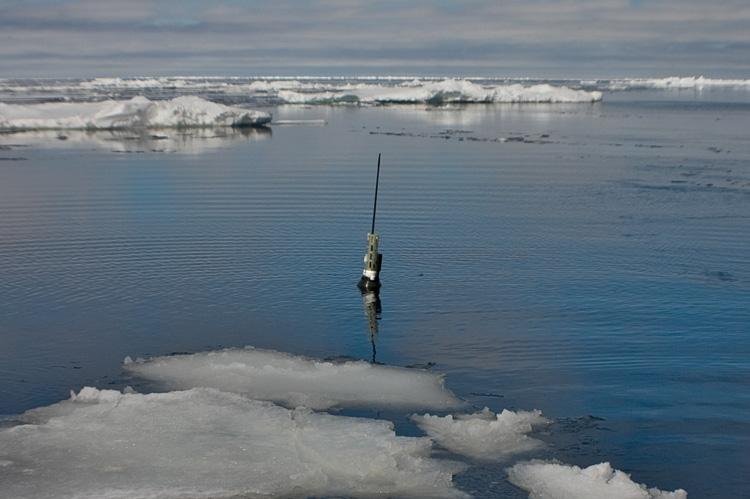Scientists use the Argo system, a fleet of over 4,000 floats, to track ocean temperatures and other data. Photo by Argo
BERKELEY, Calif., Jan. 5 (UPI) -- There was no "global warming hiatus" between 1998 and 2012. New research by scientists at the University of California, Berkeley, confirmed the conclusion of the National Oceanic and Atmospheric Administration.
Climate change deniers previously pointed to the supposed slowdown in rising surface temperatures as proof global warming was a hoax. But a 2015 study by NOAA scientists showed the hiatus was a statistical illusion created by changes in the way scientists measure ocean surface temperatures.
Modern buoys -- which have assumed most ocean observation duties over the last two decades -- tend to record cooler surface temperatures than ship-based systems, even when measuring the same ocean water at the same time. Most ships measure the temperature of ocean water pumped through the engine room, which tends to be warmer. Buoys measure ocean water in situ.
The 2015 NOAA study, published in the journal Science, showed the buoys' "cold bias" explained the hiatus.
The new study by scientists at Berkeley -- published this week in the journal Science Advances -- corroborates NOAA's analysis. The study looked at ocean temperature data collected by buoys, satellites and robotic floats, and determined ocean temperatures have continued to rise at an accelerated rate since 1970.
"Our results mean that essentially NOAA got it right, that they were not cooking the books," lead study author Zeke Hausfather said in a news release.
Instead of trying to combine older ship data with newer buoy data, Berkeley scientists looked at different data sources independently.
"Only a small fraction of the ocean measurement data is being used by climate monitoring groups, and they are trying to smush together data from different instruments, which leads to a lot of judgment calls about how you weight one versus the other, and how you adjust for the transition from one to another," Hausfather explained. "So we said, 'What if we create a temperature record just from the buoys, or just from the satellites, or just from the Argo floats, so there is no mixing and matching of instruments?'"
Each separate dataset showed the same trend: over the last 20 years, Earth's oceans warmed an average of 0.12 degrees Celsius per decade. The warming trend measured during the second half of 20th century has continued into the 21st.
"People don't get much credit for doing studies that replicate or independently validate other people's work," Hausfather said. "But, particularly when things become so political, we feel it is really important to show that, if you look at all these other records, it seems these researchers did a good job with their corrections."















